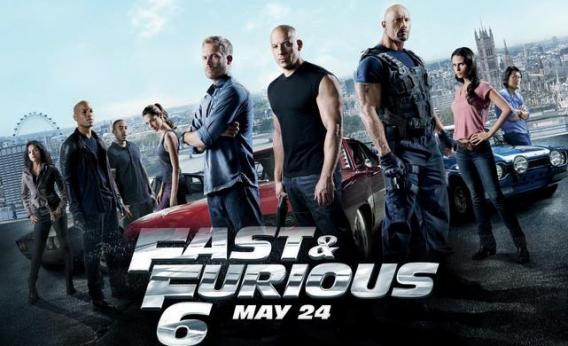Like any reasonable person, I watch the Fast and the Furious film franchise primarily for its insights into moral philosophy and political economy. At a fundamental level, the franchise is about what Harvard philosopher Christine Korsgaard identifies in The Sources of Normativity as the “intractable conflicts” that arise from our conflicting practical identities. As moral actors we are, first and foremost, human and subject to impersonal moral obligations. But in this neo-Kantian, human-centered framework we face the unavoidable reality that as humans we are each beautiful unique snowflakes with our own particular lives and particular obligations to particular people. To simply ignore our concrete obligations to one another in the face of abstract obligations to humanity would, itself, be inhuman.
The key idea of the films is a strong—and somewhat unusual—assertion that this conflict not only exists but should be uniformly resolved in favor of particularism. Dominic Toretto’s overwhelming emphasis is on the importance of literal and metaphorical family ties.
In the first film, Brian O’Conner heroically abandons abstract obligation to law and order to discharge a debt to Toretto. In the second, O’Conner is motivated not by the chance to put a halt to law-breaking but by the chance to discharge an unrelated debt to a childhood friend. The less said about Tokyo Drift the better. In Fast and Furious O’Conner and Toretto revisit their mutual obligations, and O’Conner literally and metaphorically joins the family. In Fast 5, new character Luke Hobbs starts down the O’Conner path and ultimately ends up violating his obligations to law and order to discharge a personal debt to Toretto et al. And while I don’t want to reveal too much about the details of Fast & Furious 6, suffice it to say that Letty Ortiz shows an extreme form of loyalty turnabouts based on personal ties and eventually the entire NATO command structure is subverted for essentially personal reasons. At no point in the films is there any suggestion that one ought to put an abstract ideological or ethical commitment above a specific obligation to family.
Sociologically speaking, this is a classic moral outlook of a low-trust society well-captured by the allegedly Bedouin phrase “I against my brother, my brothers and I against my cousins, then my cousins and I against strangers.”
The problem, of course, is that this sort of particularistic outlook is very dysfunctional on a social level. You can’t have a prosperous and secure society unless the law is enforced. But how can the law be enforced when the prison guards are massively corrupt? Ultimately, a functioning economy depends on functional politics, and functional politics depend not just on monitoring and incentives but on esprit de corps and a willingness to make abstract ideals a priority.
It would be comforting to simply dismiss the Fast and Furious franchise as an ethically unfortunate series of movies about illegal street racing. But as David Madland has written, the low-trust ethics it embodies are, in fact, typical of societies featuring a high and growing level of income inequality:
Studies across U.S. states, of the United States over time, and across countries all find that societies with a strong middle class and low levels of inequality have greater levels of trust of strangers. Trust is based upon the belief that we are all in this together, part of a “moral community,” according to University of Maryland Professor Eric Uslaner. It is difficult to convince people in a highly stratified society that the rich and the poor share common values, much less a common fate.
As John Stuart Mill argued, “The advantage to mankind of being able to trust one another, penetrates into every crevice and cranny of human life: the economical is perhaps the smallest part of it, yet even this is incalculable.” Mill may have thought the impact of trust on economic growth incalculable, but modern researchers have sought to quantify it. One study of U.S. states measured the percentage of state residents who think “most people can be trusted”—ranging from about 10 percent on the low end in Arkansas to more than 60 percent in New Hampshire—and then analyzed the long-term economic growth of those states, controlling for a host of economic and political factors such as initial levels of education and income. It found that “a 10 percentage-point increase in trust increases the growth rate of GDP by 0.5 percentage points” over five years.
Trust reduces transaction costs because less time and resources are spent verifying and policing. And trusting people see the world as full of opportunities. With higher levels of trust, people are more likely to innovate, seek out trade and new technologies, and generally take economically sound risks.
In a world where the system increasingly seems to be rigged, it’s natural to turn to the Dominic Torettos of the world as heroes. Yet Dom, for all his hard work, ingenuity, and undeniable skill doesn’t really do anything useful or productive. He’s a nice guy who’s loyal to his friends and family. He lives by a code. And his outlook is increasingly appealing in an increasingly unequal America. But it’s ultimately destructive of the social institutions needed to generate prosperity. And yet at a time when elites long ago stopped caring whether the gains of economic growth would be widely shared, and in recent years seem to have turned their backs on the unemployed altogether, then these are the heroes we’ll turn to.
Correction, May 29, 2013: This post originally misspelled Brian O’Conner’s last name.
